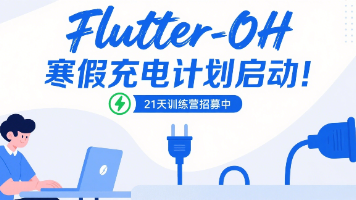uni-app使用websocket(封装、心跳检测)
·
前言:
最近想在uni-app的小程序中使用websocket进行双通讯的,而uni-app的插件市场中对websocket也做了很好的封装,例如:socket.io,但由于后端使用java的websocket,导致我在socket的url总是对应不上那边,所以无奈只能改成原生websocket,而uni-app中websocket很多文章都有介绍,然而直接使用时总是有或多或少的问题,所以对其进行了封装和修改,并且在项目中能正常使用,下面就直接上代码
封装websocket
class websocketUtil {
constructor(url, time) {
this.is_open_socket = false //避免重复连接
this.url = url //地址
this.data = null
//心跳检测
this.timeout= time //多少秒执行检测
this.heartbeatInterval= null //检测服务器端是否还活着
this.reconnectTimeOut= null //重连之后多久再次重连
try {
return this.connectSocketInit()
} catch (e) {
console.log('catch');
this.is_open_socket = false
this.reconnect();
}
}
// 进入这个页面的时候创建websocket连接【整个页面随时使用】
connectSocketInit() {
this.socketTask = uni.connectSocket({
url: this.url,
success:()=>{
console.log("正准备建立websocket中...");
// 返回实例
return this.socketTask
},
});
this.socketTask.onOpen((res) => {
console.log("WebSocket连接正常!");
clearTimeout(this.reconnectTimeOut)
clearTimeout(this.heartbeatInterval)
this.is_open_socket = true;
this.start();
// 注:只有连接正常打开中 ,才能正常收到消息
this.socketTask.onMessage((res) => {
console.log(res.data)
});
})
// 监听连接失败,这里代码我注释掉的原因是因为如果服务器关闭后,和下面的onclose方法一起发起重连操作,这样会导致重复连接
// uni.onSocketError((res) => {
// console.log('WebSocket连接打开失败,请检查!');
// this.is_open_socket = false;
// this.reconnect();
// });
// 这里仅是事件监听【如果socket关闭了会执行】
this.socketTask.onClose(() => {
console.log("已经被关闭了")
this.is_open_socket = false;
this.reconnect();
})
}
//发送消息
send(value){
// 注:只有连接正常打开中 ,才能正常成功发送消息
this.socketTask.send({
data: value,
async success() {
console.log("消息发送成功");
},
});
}
//开启心跳检测
start(){
this.heartbeatInterval = setTimeout(()=>{
this.data={value:"传输内容",method:"方法名称"}
console.log(this.data)
this.send(JSON.stringify(this.data));
},this.timeout)
}
//重新连接
reconnect(){
//停止发送心跳
clearInterval(this.heartbeatInterval)
//如果不是人为关闭的话,进行重连
if(!this.is_open_socket){
this.reconnectTimeOut = setTimeout(()=>{
this.connectSocketInit();
},3000)
}
}
//外部获取消息
getMessage(callback) {
this.socketTask.onMessage((res) => {
return callback(res)
})
}
}
module.exports = websocketUtil
调用方式
1.单页面调用
<script>
//引入websocket文件
import wsRequest from '@/script/websocket'
export default {
data() {
return {
socket: null,
}
},
mounted() {
this.socket = new wsRequest(
`${process.env.VUE_APP_SOCKET_URL}/${+new Date()}`,
10000
);
let data = {value:"传输内容",method:"方法名称"};
this.socket.socketSend(data);
this.watchSocket();
},
methods: {
watchSocket() {
this.socket.getMessage(opt => {
console.warn("消息接收:", opt);
})
},
}
}
</script>
2.全局调用
- 在main.vue页面中
//引入websocket文件
import wsRequest from './static/js/websocket.js'
//开启websocket
let websocket = new wsRequest("ws://xxx:3100/connect/websocket",5000)
//挂载到全局
Vue.prototype.$socket = websocket
- 页面中调用
// 发送消息
let data={value:"传输内容",method:"方法名称"}
this.$socket.send(JSON.stringify(data));
// 接收消息
this.$socket.getMessage(res=>{
console.log(res);
})
注意事项
//在测试环境时url可以写成 ws://xxx:3100/connect/websocket
new wsRequest("ws://xxx:3100/connect/websocket",5000)
//发布体验版或正式版,url一定要写成 wss://xxx:3100/connect/websocket
new wsRequest("wss://xxx:3100/connect/websocket",5000)
除此之外,还需要在微信管理平台中对小程序的开发–>开发管理–>开发设置–>服务器域名 加入以下配置
后言
感谢评论区大佬adcold88提供的外部监听消息getMessage的方法实现

AtomGit 是由开放原子开源基金会联合 CSDN 等生态伙伴共同推出的新一代开源与人工智能协作平台。平台坚持“开放、中立、公益”的理念,把代码托管、模型共享、数据集托管、智能体开发体验和算力服务整合在一起,为开发者提供从开发、训练到部署的一站式体验。
更多推荐
 已为社区贡献1条内容
已为社区贡献1条内容







所有评论(0)